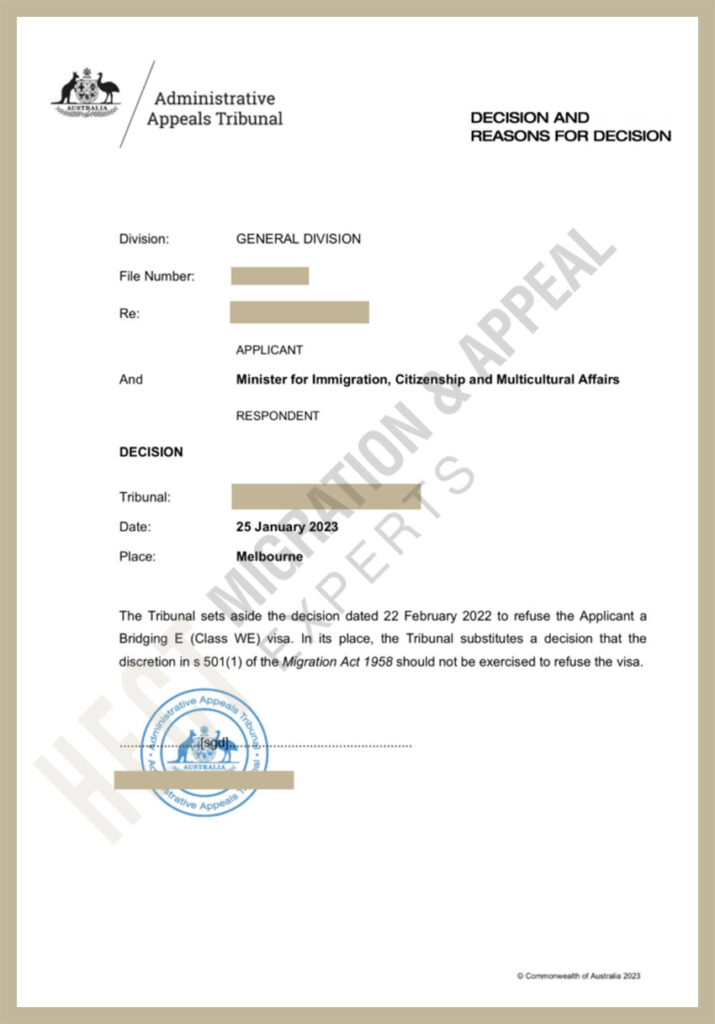Visa Type
AAT BVE
Decision Date
25 Jan 2023
Case Summary
Background:
During L’s study period in Australia, he committed an offense and was initially sentenced to 12 months of imprisonment. However, as it was his first offense, the judge ultimately decided to substitute his sentence with a community service order. After completing the community service order, L’s lawyer submitted an application for a bridging visa on his behalf. However, after waiting for nearly 20 months for the visa, L’s home was raided by immigration authorities and police in the early morning, and he was informed on the same day that his bridging visa (Visa E) had been rejected due to failing a character test. He was subsequently taken to an immigration detention center.
Taking Over the Case:
We received a call from L on the day he was transported to the immigration detention centre and immediately took over his case. Given the nature of such cases, the Administrative Appeals Tribunal (AAT) required a swift hearing and resolution, leaving us with very little time to prepare and compile relevant legal documents. We promptly began gathering detailed information about the client’s visa history and the specifics of his prior offense. He was experiencing high levels of anxiety during his detention, so we provided psychological support while handling his case. Additionally, we thoroughly analyzed the challenges of the case with the applicant, informing him that, based on past cases, less than 30% of bridging visa applications rejected due to character tests were successful on appeal at the AAT stage. The applicant had a clear understanding of his predicament and chose to place full trust in us, actively cooperating with our efforts.
The Day of the Hearing:
On the day of the hearing, we dispatched two licensed agents to represent the client, while the immigration authorities assigned two experienced licensed lawyers. However, the applicant appeared extremely nervous during the hearing. During cross-examination, he provided less than 50% of the required information and struggled with incoherent responses, raising doubts about the credibility of his testimony in the eyes of the tribunal. His courtroom performance was a cause for concern. However, during the final oral submission on the second day of the hearing, we, as his representatives, emphasized the applicant’s genuine willingness to abide by the law and his commendable conduct since his offense. We also cited numerous relevant cases to support why he should be granted Bridging Visa E.
Successful Outcome:
After two weeks of anxious waiting, we received the AAT’s notification of success. The applicant was finally released after more than three months in detention. This case underscores one of the key factors for success: the applicant’s trust in our team and his active cooperation. Even in complex cases, as long as the applicant is willing to fully cooperate, we will spare no effort, and turning adversity into triumph is not an empty promise. This case also highlights the importance of the AAT as an independent tribunal to review and rectify immigration decisions, ensuring that every case receives fair treatment and that visa refusals are not the end of the world.

